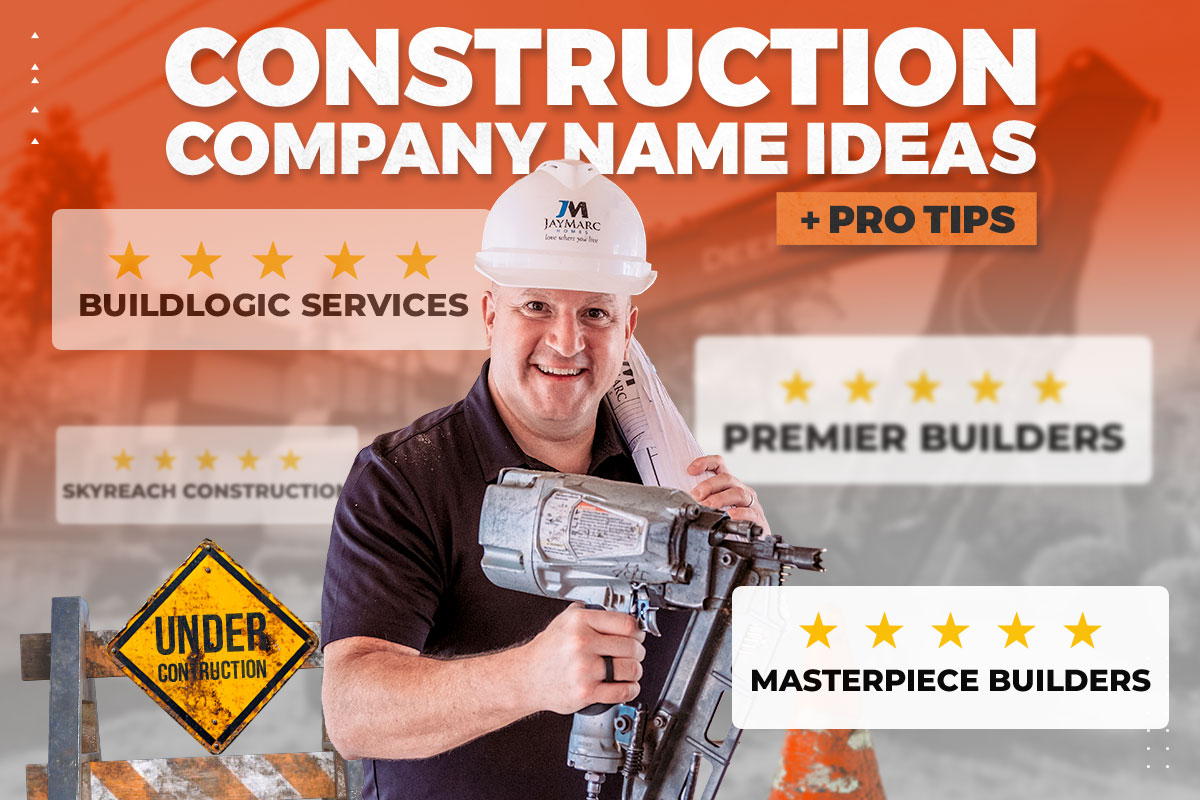From grocery stores to Amazon, you see private label products all day long. But do you know how to find private label products?
We’ve talked to a lot of people who make money selling private label products. Amazon FBA is one of their favorite tools to sell online, and they had some great tips about other sales outlets as well.
We’ll provide you with a guide to the product development process with input from interviews we’ve done with some of the most successful independent private label sellers.
You’ll learn all there is to know on topics like these:
Click any of the links above to jump to the section that most interests you.
What are Private Label Products?
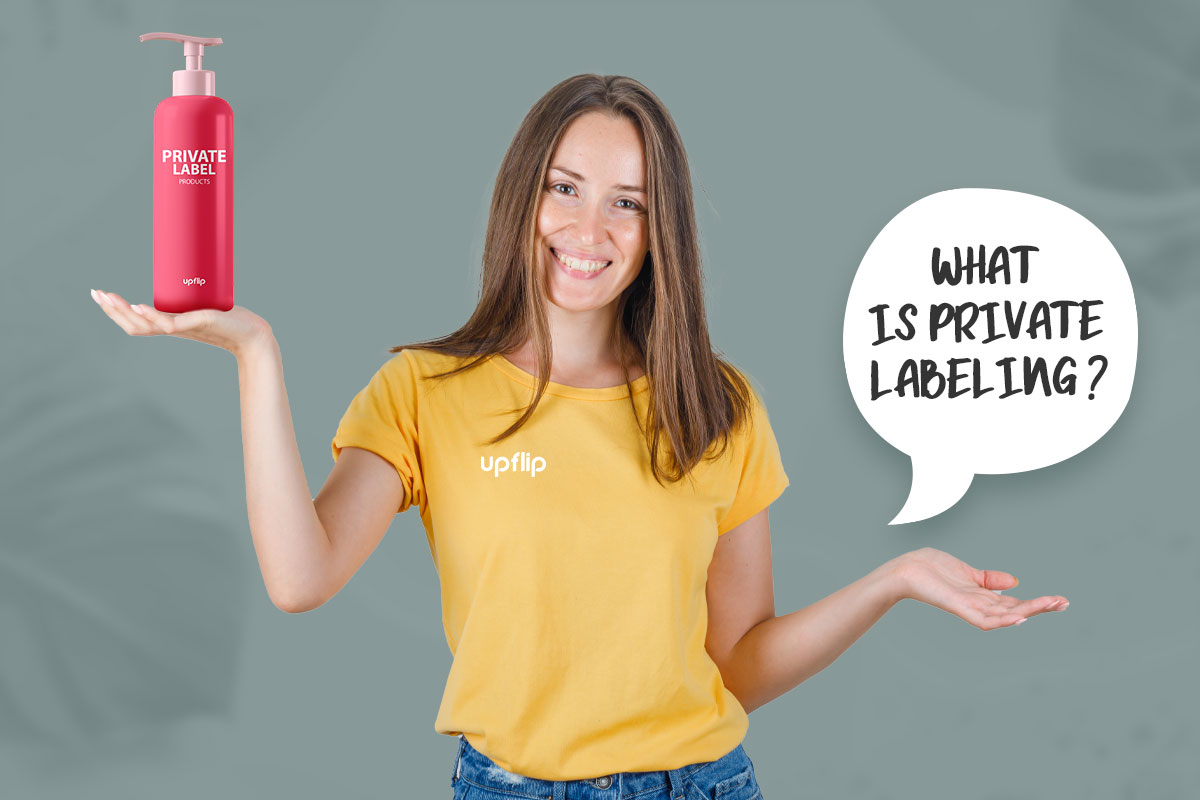
Private label products are products created by a manufacturer with the intent for an exclusive third party to sell them using a different brand name. Private labeling removes the need to invest in high-priced equipment by paying an existing manufacturer for the production of goods.
Private label businesses are growing increasingly popular in the ecommerce field thanks to the reduced startup costs of a private label brand.
White Label vs Private Label
Understanding the difference between private label vs white label is important before getting started in this field. Private labeling provides exclusivity for the retailer or wholesaler. White labeling allows multiple retailers to add their branding to the product and sell it as their own.
Here’s what this confusion can cause harm to your business: If you create a private label product and sign a manufacturing agreement as a white label product, you have effectively allowed the third-party manufacturer to use and sell your intellectual property for their gains. Moral of the story? Make sure to read your contract!
How Much Do Private Label Products Make?

According to Statista, private label products accounted for $6.6 trillion of 2021 GDP and are projected to hit $7.9 trillion in 2026. This includes big brands that offer their own branded products. To draw inspiration from which products sell most, look at the major retail private labels:
- Walmart: Great Value
- Amazon: Amazon Basics
- Costco: Kirkland
- Target: Archer Farms
Benefits of Selling Private Label Products
You might want to consider becoming a private label seller for these advantages:
- You Control Production: Specifying quality, materials, ingredients, and production rate (as long as it is over the minimum order quantity (MOQ) provides more control than white label brands.
- You Can Act Quicker: Major competitors have to go through a chain of command, but a private label brand can adjust to market conditions faster.
- You Set Pricing: You get to set the pricing to get the margins you need. Using another business model might make pricing competitively difficult. (If your prices are too high, you won’t sell products, though).
- You Control Marketing: When you sell another company’s products, you have to obey their brand communication guide. When you create your own product ideas, you can package them how you want and market them to your target audience without worrying if someone will reject your marketing ideas.
Cons of Selling Private Label Products
Selling private label products doesn’t come without challenges. Here are some to keep in mind:
- Manufacturer Quality: Every manufacturer has their own quality control standards. If your product quality expectations are higher than those of your suppliers, you might be disappointed.
- Consumer Perception: Private brands pop up every day with the prevalence of print-on-demand. Some are amazing, while others are cheap and poorly made. Consumers need time to trust a brand. Do everything you can to build their trust.
- Loyalty Building: Your target audience doesn’t know you yet. Until they get to know you and love your brand, finding customers for your private label products may be difficult.
How to Private Label Products
You’ll need to perform the following tasks when you create your own brand name products:
- Decide what type of private brand you’ll be.
- Find private label manufacturers.
- Test their products.
- Negotiate a deal.
What are the Best Niche Markets?
First, you’ll want to perform market research. You’ll want to establish:
- The products you want to sell
- The target market for the products
- Where you will sell the products
- How you will market the products
This will impact what private label manufacturers you want to approach. It will also impact the profit margins you earn on your private label products. Most private labels work best with products that are replenished regularly, but there are a few that don’t fall into this category.
Common Private Label Product Ideas

We pulled a list of commonly searched private label, white label, and branded products from ahrefs.com to find out what industries use the most private label-ready products. If you’re looking for a niche market, consider these private labeling ideas:
- Private label clothing
- Private label hair care products
- Branded promotional products
- White label food products
- Private label skin care products
- White label marketing products
- Private label detailing products
- Private label cleaning products
- White label furniture
- Private label pet products
- Private label CBD products
This is just an overview to get the wheels turning in your brain. We’ll cover some of these categories more in-depth later in the article.
Where To Find the Best Private Label Suppliers
Next, you’ll need to choose a private label supplier. There are plenty of private label suppliers, depending on your industry. Check a supplier directory like:
- ThomasNET: The most sophisticated database of third party manufacturers.
- Private Label Help: 27 categories of private label manufacturers.
- HAPPI: Find a private label manufacturer by industry or country.
- Impressions: Find apparel private label manufacturers.
(Keep reading—there’s more info on these manufacturers later on.)
Once you’ve found that a private label manufacturer creates products similar to the ones you want to sell, it’s time to ask them to send a sample.
Test Each Private Label Manufacturer
Before you get into a minimum order quantity contract and provide the third party manufacturer with your intellectual property, you want to verify they are a reliable manufacturer. That means you’ll want to ask the private label manufacturer for some samples.
Pay attention to aspects like:
- How long does it take to receive your shipment?
- How much did the products cost before shipping?
- Is the quality of the products consistent?
- How much did shipping cost?
- How long was shipping vs lead time?
These questions will help you set benchmarks when comparing the private label products. Once you establish which manufacturer to make part of your supply chain, it’s time to move to the next step.
Negotiate A Private Label Brand Contract

Private labeling will require a contract between your business and the third party manufacturer. The contract terms may be dictated by the private label manufacturer, the private label, or negotiated.
If you are using print-on-demand, the manufacturer will almost always dictate the terms, while terms for a custom-made product will be negotiated.
Even when terms are negotiated, there are some specifics that may be unchangeable, like the minimum order quantity (MOQ) or quality controls.
Now that you understand the process of private labeling, let’s circle back to where to find private label products to start your business.
How to Find Private Label Products
There are a ton of ways to find private label products for small business ventures. As part of this article, I looked for the most commonly searched private and white label products on Google. Here are the high-level categories that are most searched.
Private label bath and body products
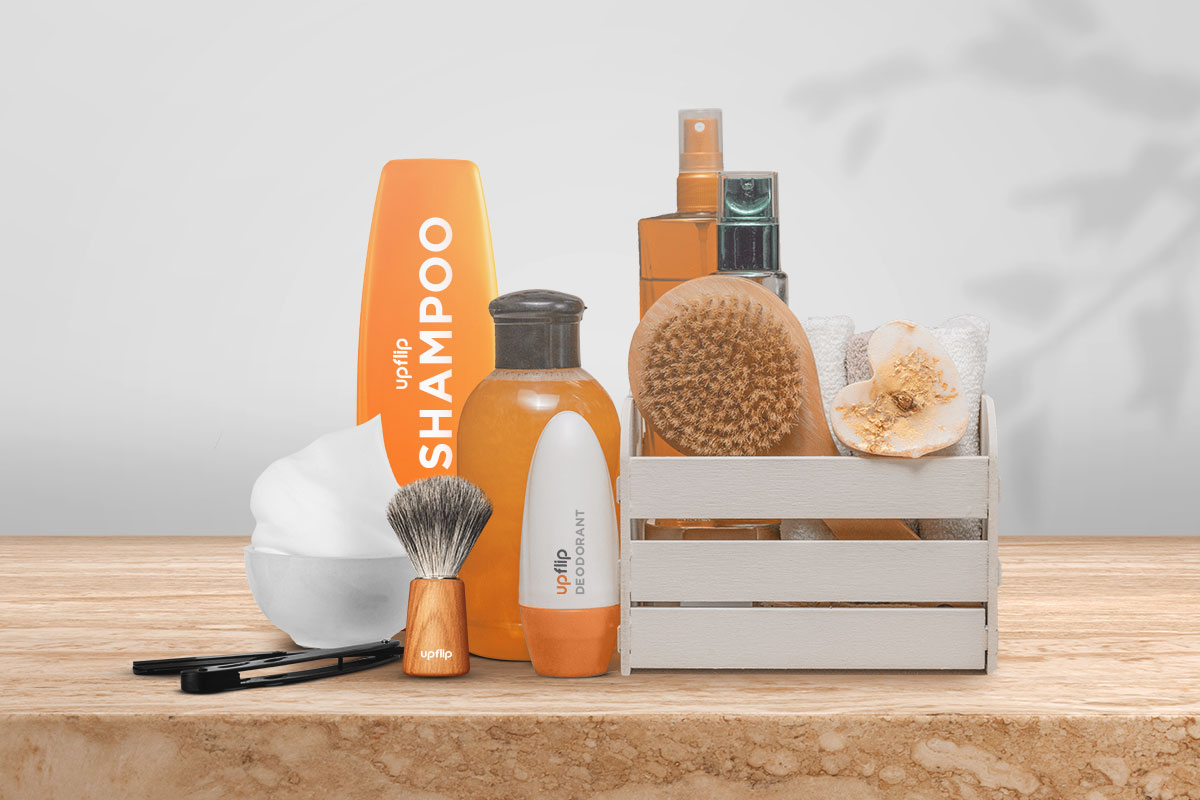
This category includes the following search terms:
- Private label beard products
- Private label hair products
- Wholesale organic skin care products private label
- Private label hair products manufacturer
- Private label hair products for small business
- Wholesale private label natural hair products
- Private label body products
- Private label soap
Best Trade Show USA to Resource Private Label Skin Products
It comes as no surprise to me that Las Vegas leads the way in trade shows to promote private label products. If you want to know how to find private label products, go check out some of these conventions.
Vegas Conventions
The following conventions will have private label wholesale beauty product suppliers:
- iSpa Conference and Expo: May 9-11, 2023
- International Beauty Show: June 24-26, 2023
- Cosmoprof: July 11-13, 2023
- SupplySide West: Oct 23-27, 2023
Most Beauty Shows Change Cities Each Year
Some other tradeshows to check out include:
- Premiere Orlando: Largest North American private labeling convention for beauty supplies.
- The Makeup Show: Hosts three conferences across the country.
- IndieBeauty Expo: This convention is primarily independent products, while others are more focused on the beauty aspect.
Find more conventions and trade shows that present private label products.
Private Label Hemp Products

To find hemp and CBD private label products to sell on Amazon and other sites, search terms like:
- Private label CBD products low minimum
- Cannabidiol private label
- Best private label CBD companies
- CBD white labeling companies
- CBD private label dropship
- private label CBD manufacturer
Joy Organics appears to be one of the better private label products examples in this industry.
Best Private Label Manufacturers

Thomasnet
Find US and Canadian manufacturers, suppliers, and buyers on this online database. Thomasnet lets you compare manufacturers by size, history, sales, standards they follow, and more. This free database is a great place to start your journey creating private label products. Learn more about Thomasnet.
AOP+
AOP+ sells print-on-demand products and connects to Etsy and Shopify to make selling in the US, UK, and EU easier. They handle order processing and fulfillment in-house, which is a rarity for print-on-demand companies. Get clothing, accessories, and other products manufactured and shipped to your customers with AOP+.
Maker’s Row
Maker’s Row was started in 2012 to connect businesses with American manufacturers. Unfortunately, this platform has a monthly or annual fee that will cost up to $1,800 per year. You can see Maker’s Row online or at many trade shows like the MAGIC fashion show.
MFG
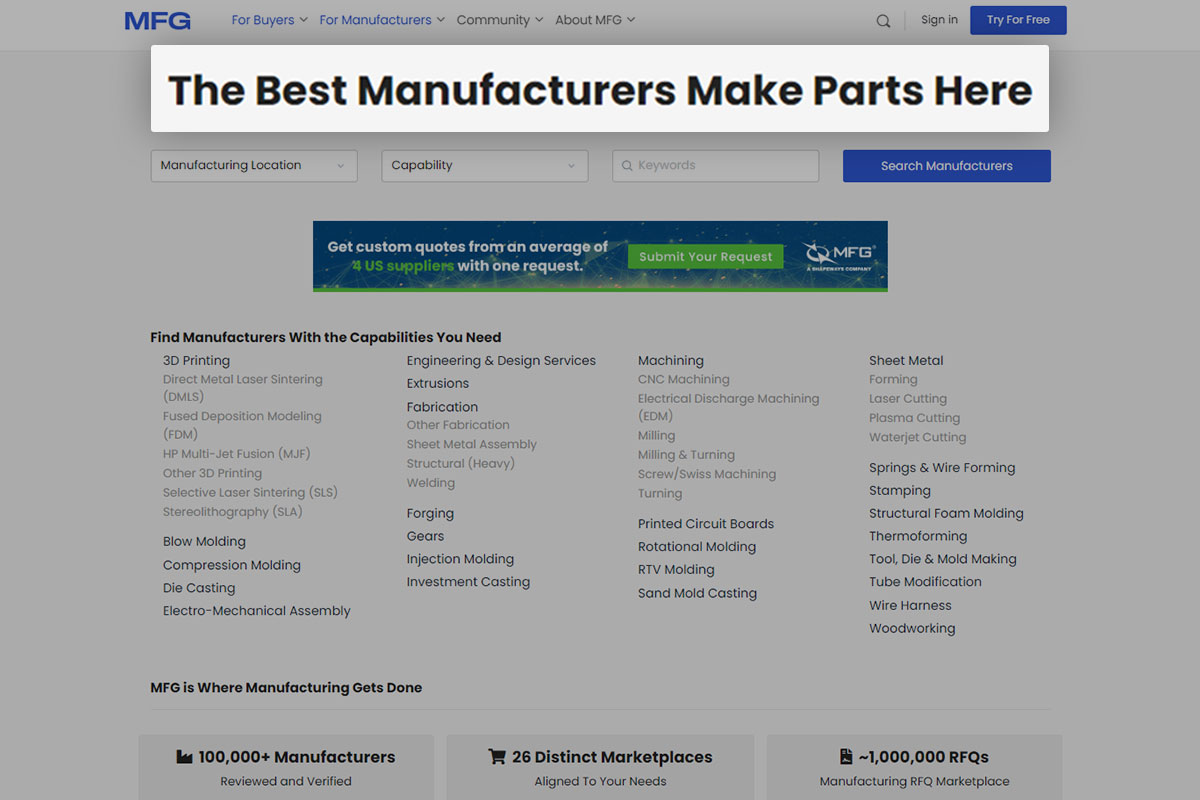
Another popular directory is MFG. You can search suppliers by continent. This directory is over 20 years old and allows you to find manufacturers or create a free profile to request quotes and use other features. While I haven’t dug deep into MFG’s database, they seem to be more focused on metals and plastics.
Kompass
This free B2B connects businesses in more than 60 countries. Kompass is one of the smaller databases, but it has more countries you can work with than other directories. I also really like that Kompass makes it easy to tell what kind of suppliers they have on their website.
SaleHoo
Check out SaleHoo for tools that go beyond a suppliers’ directory. This company offers educational materials, market research tools, and a forum to get the most out of your private label products and dropshipping company. You’ll have options for monthly, annual, or lifetime plans depending on your needs, but you can get access for as low as $67.
How to Sell Private Label Products

After you have sourced your private label products, you’ll need to set up the system to sell your private label goods. You’ll need to perform the following steps when you have private label products to sell.
- Register your private label business
- Create branded packaging
- Build a website (or list your products in an online marketplace)
- Market your product line
- Start selling
- Get reviews
- Pay your taxes
Let’s go through each of the steps about selling private label products.
Step 1. Register Your Private Label Business
A private label business should form their legal business entity before they start accumulating costs. This means you’ll need to:
• Get an LLC or Corporation
• Get a Sales Tax Permit
• Get a Business Bank Account
You can learn to do all these in our learning hub, which gives step-by-step instructions for each of the steps for starting a business.
Step 2. Create Branded Packaging
Now that your private label business is legal, you’ll want to create custom packaging for your private label products. Depending on the product, the business labels might be:
- A sticker on a plastic sleeve
- A custom designed box with brand labels
- Branding labels on the inside of a t-shirt
Check out PackLane’s website for examples of product packages and how quantity impacts pricing. Some of the packaging can be as high as $50 for a single box, but you can save up to 90% when you buy in bulk.
Step 3. Build a Website (or List Your Products in an Online Marketplace)

eCommerce business models make it easy for a business owner to build their own websites and ecommerce stores. This is really important when you have private label products to sell (I’ll tell you more in our cautionary tale). A private label product company will need to:
- Create an ecommerce market somewhere like Woocommerce or Shopify
- Setup a payment processor
- Take photos of their own branded products
- Write compelling product descriptions
Learn more about creating an online store.
 |
UpFlip Cautionary Tale |
|
| A consulting client of mine contracted one of the top web development companies in the area to create his online store. He wanted the first heading to be below the fold (not visible when you first open the webpage) because he spent $10K+ on photography to have beautiful pictures that conveyed the style of the brand. The website developers refused and never delivered a final product because they disagreed with his request. Long story short, the client has spent hundreds of thousands of dollars, has huge amounts of inventory, and has pretty much written off his business because he paid for everything on the front end and never got past this hiccup with the website. |
Step 4. Market Your Product Line
Once you have an online store, you’ll want to start marketing your products. There are a lot of ways to market private labeling companies. Some of the best ways are:
- Keyword Research and Optimization
- Content Creation
- Sharing on Social Media
- Product Giveaways
- Influencer Marketing
- Listing Them in Other Marketplaces
Keyword Research and Optimization
Even the best private label products aren’t going to sell themselves. People have to know about them. You need to perform keyword research and optimize your site to meet the terms that people search for when looking for a product.
For instance, the owner of Pooch Selfie, a custom product that holds a tennis ball on top of a cell phone, gets around 50% of his ecommerce store traffic from people who find his private label products by searching for things like “dog selfie sticks” or “Shark Tank dog toys” as opposed to the branded term.
Watch the video below for his tips on creating a custom product.
Content Marketing for Private Label Brands
You’ll want to use the keywords you found to drive your content by using them in product pages, URLs, blogs, pictures, and more. Content marketing lets search engines and consumers know that you are an active online business.
The more useful the content you create, the more likely your online store is to rank for the subject matters you are targeting. Here at UpFlip, we use SurferSEO and Ahrefs to help our brands rank for keywords.
Social Media

After you’ve written content for your private label business, you should share it on social media. Make sure the content fits both your private label business and the social media platform you share it on. Some types of content perform better on certain social media platforms:
- Short Form Video: TikTok, YouTube, Facebook, and Instagram
- Long Form Video: YouTube, Facebook, TikTok, LinkedIn
- Pictures: Instagram, Facebook, Twitter, LinkedIn
- Blogs: Facebook, Instagram, Twitter, LinkedIn
Experiment with posting times to see what time works best for your own brand.
Everyone Loves Product Giveaways
Private label brands can do well with product giveaways. You’ll want to make the giveaway something that is inexpensive for you, but that will get your private labeling where people use it as frequently as possible.
For instance, if you sell private label car care products you might want to do a giveaway for fun branded air fresheners. This gives you an easy way to collect customers’ emails and information to target them for other car cleaning products.
Try Influencer Marketing
Influencer marketing is a great way to help people find private label products. This marketing business model makes use of people who have a large following on social media who can talk about specific niches and bring awareness to their followers.
They can help boost your private label product sales by using your products in a video and sharing the brand identity with their followers. This works particularly well for private label beauty products as followers are eager to learn what an influencer does to achieve specific makeup or hairstyle.
List Your Products in Other Marketplaces

Create an online store on every marketplace you can to get your private labeling in front of as many eyes as you can. According to SimilarWeb, the top places to sell private labeled products are:
- Amazon: Learn more about selling on Amazon.
- Ebay: Learn how to sell private labeling on eBay’s online store.
- Walmart: Find out how to sell your private label apparel or other products on Walmart.com.
- Etsy: Learn about starting an Etsy shop from a brand owner.
- Target: Learn more about private labeling sales through Target.
Hopefully, your product research and private labeling work has paid off. Next, you should start selling your private label products for small business profits.
Step 5. Start Selling Your Private Label Products
Once you’ve created your online store, there are plenty of additional ways to sell your products. You can sell:
- Private label products wholesale
- Private label products in retail stores
- Amazon private label products
- Direct to consumer
Private label companies can also upsell the private label products by suggesting an additional purchase of their own products or retail brands that work well with them.
For instance, if you private label hair products, you can suggest someone buy the conditioner when they buy the shampoo and give the customer a discount for buying both together.
Step 6. Get Reviews for Your Private Label Company

No brand starts with instant name recognition. You’ll need to get reviews for your private label to help overcome poor consumer perception of private and white label products.
Once people see that a company has great product reviews, they are more likely to accept that the brand identity isn’t just trying to make higher profit margins on generic products.
One of the best ways to do this is to automate requests for reviews several days to a week after the consumer has received the product. (Be careful though. Amazon private label products can get in trouble if they request reviews through means other than the standard product review process.)
Step 7. Don’t Forget To Pay Your Taxes
One of the ways many business owners and self-employed people get in trouble is by forgetting to pay their taxes. Many locations require quarterly tax filings for private label business ventures.
These filings may include federal income taxes, state income taxes, sales taxes, and payroll taxes. Make sure to keep track of the due dates and work with a licensed tax preparer.
How to Sell Private Label Products on Amazon
Amazon is a great place to sell a private label. Amazon offers multiple ways for merchants to sell, including Amazon FBA, Amazon Merch, and other strategies. It doesn’t matter which strategy you choose; you’ll want to:
- Perform market research
- Start an Amazon merchant account
- Decide how you’ll sell on Amazon
- Find private label products to sell on Amazon
- Register your products with Amazon
- Send them to Amazon FBA private label
Step 1. Research the Market
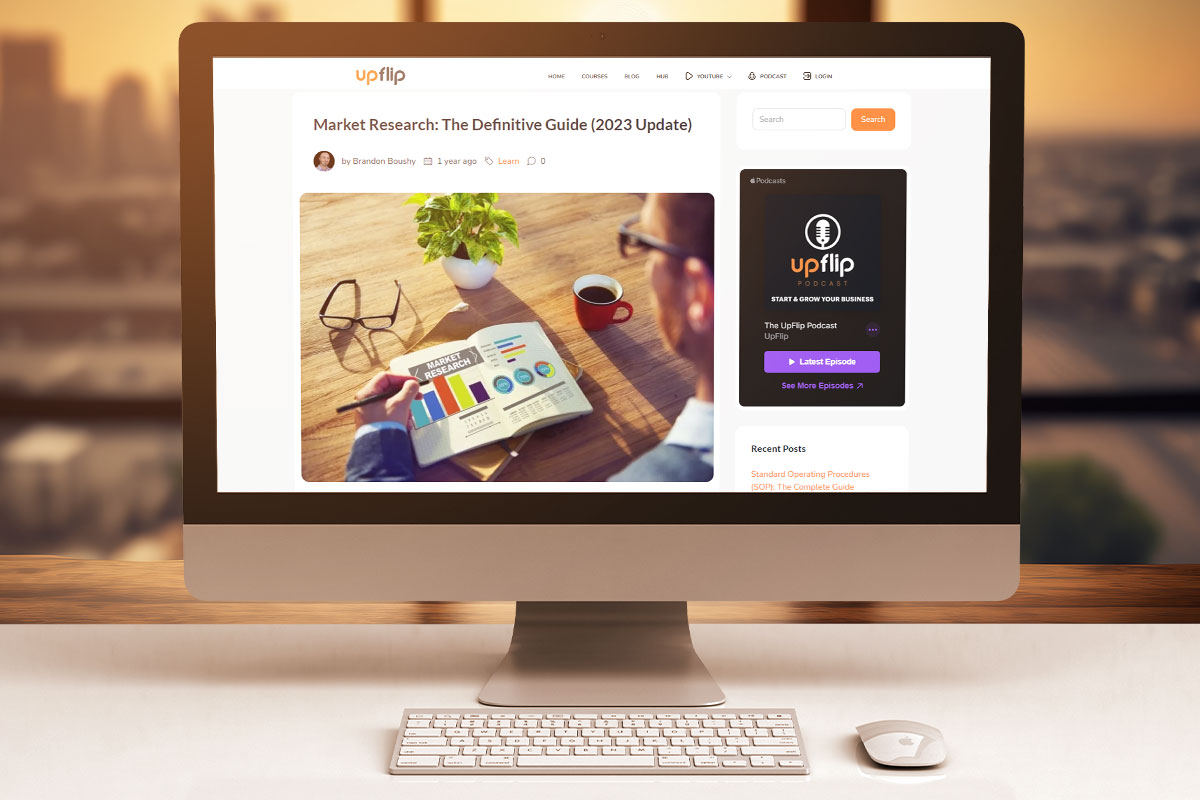
You’ll want to research Amazon’s seller options to decide which one you want to use. Most Amazon sellers use the FBA service, in which the manufacturer ships your bulk goods to Amazon and Amazon fulfills the order for a referral fee between 5 and 20%.
Make sure to read the fees really well because they impact pricing and profitability.
One particularly useful trick you can use with Amazon FBA is working with a dropshipper to produce your custom products. Place an original bulk order that is sent to the Amazon warehouse, then every time a product is ordered, have Amazon ship it, send the dropshipper money for more, and you keep the profits.
Just like that, you get the benefits of Prime and dropshipping all in one.
You’ll also want to research the demand for the product category. Make sure you study the number of competitors and the number of searches for similar products. Michael Jackness, the owner of treadmill.com and Amazon FBA private label stores, told us:
Hear more from Michael to learn how he created a $9 million annual ecommerce company.
Learn more about market research.
Step 2. Create an Amazon Seller Account
Next, you’ll need to sign up for an Amazon seller account. Go to Seller Central. We show you how to set up an Amazon account in our blog about an Amazon FBA business.
Step 3. Test the Products
Test the products to make sure there are no quality control issues. Depending on the type of product, you’ll do this in different ways.
For example, I stress-test t-shirts by running them through a wash to test how many times you can wash and dry them before the designs wear off. With candles, you might want to test the burn time and see how long it takes to burn them down to nothing.
There are plenty of ways to test any product; you should definitely know how long your product will last.
Step 4. Find Private Label Products to Sell

We’ve already provided a list of private label products and where to find them, but you should check out our best things to resell blog for more information on the best products to private label.
Step 5. Register Your Products With Amazon
Any branded products should be registered with Amazon brand services to protect them from being stolen. To do this, you’ll need a registered trademark with the appropriate government office. Check out Amazon’s Brand Services page.
Step 6. Send Your Products to Amazon
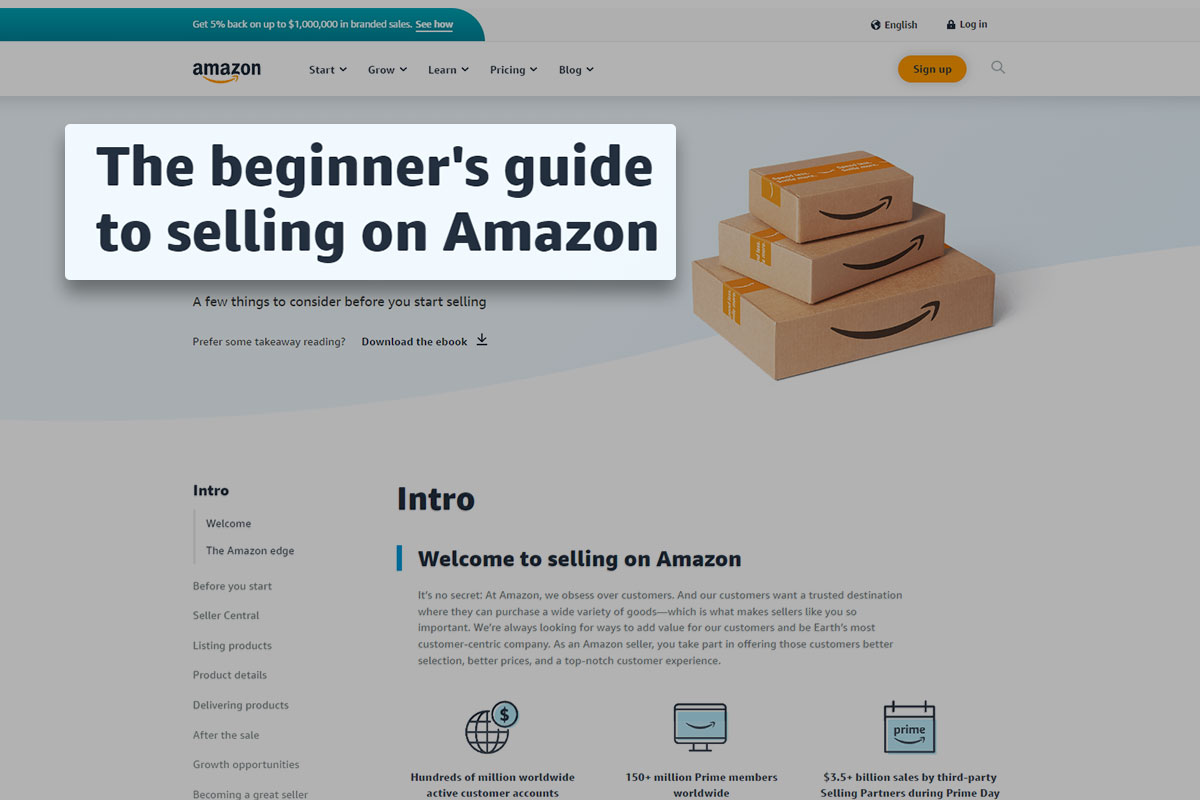
To make the most of Amazon, you need to have an Amazon FBA account. Sending your products to Amazon’s warehouse means they qualify for Amazon Prime. You can also qualify for Prime with self fulfillment (but there are more stringent requirements). I strongly suggest reading Amazon’s guide before getting started as well.
People Also Ask
What is White Labeling?
The white labeled definition is to provide the exact same product to different companies with their brand logo on it. The manufacturer normally offers this service for the top products to sell online because it helps them run closer to 100% capacity.
The name comes from manufacturers providing the products with a blank white label so other companies can sell the product with their branding.
Vitamins, marketing, and other industries use this strategy to help business owners make more money by filling excess capacity while the marketers can increase their offerings without the additional costs of creating a new manufacturing facility.
What is Private Label Masters?
Private Label Masters is an affiliate course that teaches people about the best thing to sell online through private labeling and white labeling.
What is the Best Product to Sell Online?
The best product to sell online is a product that has the following characteristics:
- High search volume
- Low competition
- High profit margin
- You are knowledgeable and passionate about it
Start Building a Private Label Company Today
At this point, you should be ready to start your market research and start an Amazon private label store. I strongly recommend using the links in this blog to dig deeper into the subject matters you need more information about.
What experience do you have with white label, private label, and custom-made products?


